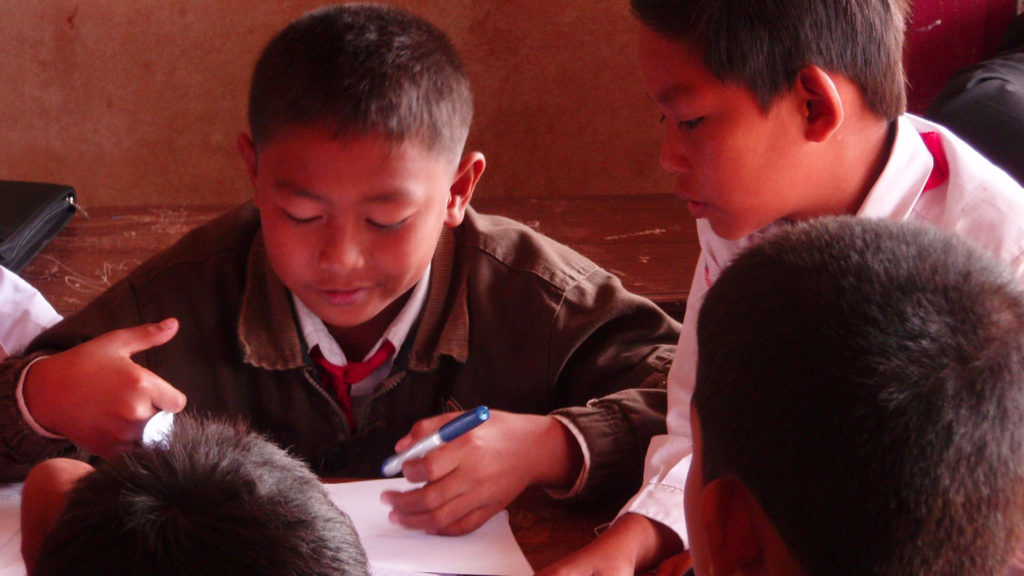
Africa is the world’s second-largest and second-most-populous continent, after Asia in both cases. With 1.3 billion people as of 2018, it accounts for about 16% of the world’s human population. Africa’s population has rapidly increased over the last 40 years and is consequently relatively young. Over 400 million children are currently living on the African continent – and the number is rising. The United Nations estimates that Africa’s population will double to 2.4 billion by 2050. That’s one-quarter of the world’s population. 40 per cent of all children under the age of five would live in Africa in the middle of the 21st century, according to the prognosis.
Although there are major regional and social differences, children in Africa are the poorest in terms of population. The situation of African kids in sub-Saharan Africa is particularly critical: 33 of the world’s 48 least developed countries are located in this region according to an SOS Children’s villages publication. Africa made great progress in several fields in 2019, including holding peaceful elections in many parts of the continent and increased economic growth. But several unresolved challenges still stagnate any meaningful development in the continent. Challenges like Insecurity, corruption, population growth, unemployment, poor governance, to mention but a few are some of the issues that have left the continent at the bottom rung of the developmental ladder. These issues have snowballed quite dangerously, affecting virtually everyone in the region, children most especially, who become the victims of these developmental setbacks.
This has birthed in earnest the need for African states to prepare to meet the needs of their growing young population, and commit to urgent, concrete actions to protect and promote the rights of all children – now and in future generations. Only recently, the African Committee of Experts on the Rights and Welfare of the Child (ACERWC) adopted AGENDA 2040, Africa’s Agenda for children: Fostering an Africa Fit for Children. This agenda emanates from the conclusions of the High-Level Conference to assess the status of the rights of children in Africa 25 years after the adoption of the Charter, this Agenda takes cognizance of the elucidation in Agenda 2063 (paragraph 53) that ‘African children shall be empowered through the full implementation of the African Charter on the Rights of the Child. By nurturing and nourishing its children, the present generation of Africans will promote the growth of the continent and secure its future. (BCN, 2020). Amongst its 10 major aspirations include, that every child survives and has a healthy childhood; every child grows up well-nourished and with access to the necessities of life; every child benefits fully from quality education; every child is protected against violence, exploitation, neglect and abuse, etc.
A great need to ensure each child is supported to achieve their full potential is becoming paramount as the 22nd-century dawns. Governments of countries can make this possible by firstly eradicating every form of child labour and child trafficking for children’s rights ought to be respected. They can also emphatically enforce policies and national bodies to protect children from abuse, maltreatment, neglect and other forms of violence. Also, the government can put in place programmes that focus on the physical and psychological health of adolescents, with special provisions for girls. Furthermore, legislation to support disabled children; provide improved immunization and nutrition services, and prevent homelessness among children should be enacted. Not forgetting the excluded children in the society from the poorest households who are unable to afford education, talk more of quality education, government and well-meaning civil organizations can make provisions of free education for these.
To commemorate the Day of African Child 2021, Centre for Family Health Initiative (CFHI) will be setting up school libraries in communities where we have our vulnerable children. This will play a great role in the life of the students by serving as the storehouse of knowledge which will enable them to develop an excellent reading habit. This is what CFHI is known for, making impacts.
All this and more would ensure the all-around growth of a robust and fit Africa for the younger generation.

